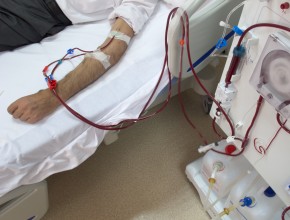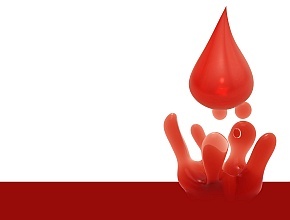Low-dose colchicine after myocardial infarction
Low-dose anti-inflammatory colchicine given after acute myocardial infarction reduced the frequency of ischemic cardiovascular events.
Inflammation is considered an important factor in the pathogenesis of atherosclerosis and myocardial ischemia. Previous studies assessing the efficacy of anti-inflammatory agents methotrexate and canakinumab, a monoclonal antibody inhibiting interleukin 1beta, in preventing cardiovascular events provided inconclusive results. The COLCOT (Colchicine Cardiovascular Outcomes Trial) study assessed whether colchicine, which exerts anti-inflammatory effects through inhibition of tubulin polymerization and microtubule generation, reduces the risk for adverse cardiovascular events in patients with a recent acute coronary syndrome. Colchicine is administered in patients with acute gouty arthritis or acute pericarditis, typically at a dose of 1.2 to 2.4 mg daily.
The COLCOT study randomized 4745 mostly male patients within 30 days of a myocardial infarction (median, 13.5 days) to receive colchicine 0.5 mg daily or placebo. Key exclusion criteria included severe heart failure (left ventricular ejection fraction <35%), type 2 myocardial infarction (related to oxygen demand), prior stroke (within 3 months), and planned or prior coronary artery bypass surgery (within the previous 3 years). Almost all patients received optimal medical therapy, with 98% receiving dual antiplatelet therapy (acetylsalicylic acid [ASA] and a P2Y12 inhibitor), 99% receiving a statin, and 89% receiving a beta-blocker. In addition, 93% of patients had a percutaneous coronary intervention related to their index myocardial infarction. The primary clinical outcome was a composite of cardiovascular death, resuscitated cardiac arrest, acute myocardial infarction, stroke, and urgent hospitalization for angina requiring revascularization.
After a median duration of follow-up of 22.6 months, there was a reduction in the primary outcome in patients allocated to receive colchicine as compared with placebo: 5.5% versus 7.1% (hazard ratio [HR], 0.77; 95% CI, 0.61-0.96). This benefit was driven by a reduction in hospitalization for angina requiring revascularization (25 vs 50 events, 1.1% vs 2.1%; HR, 0.50; 95% CI, 0.31-0.81) and in stroke (5 vs 19 events, 0.2% vs 0.8%; HR, 0.26; 95% CI, 0.10-0.70). There was no effect on overall and cardiovascular mortality (43 vs 44 and 20 vs 24 deaths, respectively) and no significant increase in the overall rate of serious adverse events or gastrointestinal events. Compared with patients receiving placebo, those receiving colchicine had a significantly higher frequency of nausea (1.8% vs 1.0%), flatulence (0.6% vs 0.2%), and pneumonia (0.9% vs 0.4%), but the frequency of diarrhea was similar (9.7% vs 8.9%). Approximately 18% of patients in both treatment groups interrupted the study treatment.
The authors conclude that the COLCOT trial provides evidence for efficacy, safety, and tolerability of low-dose colchicine at the dose of 0.5 mg daily when added to optimal medical therapy in patients with a recent myocardial infarction. The results of using this inexpensive medication support the premise of inflammation as a contributor to the pathogenesis of acute coronary syndromes.
 English
English
 Español
Español
 українська
українська






